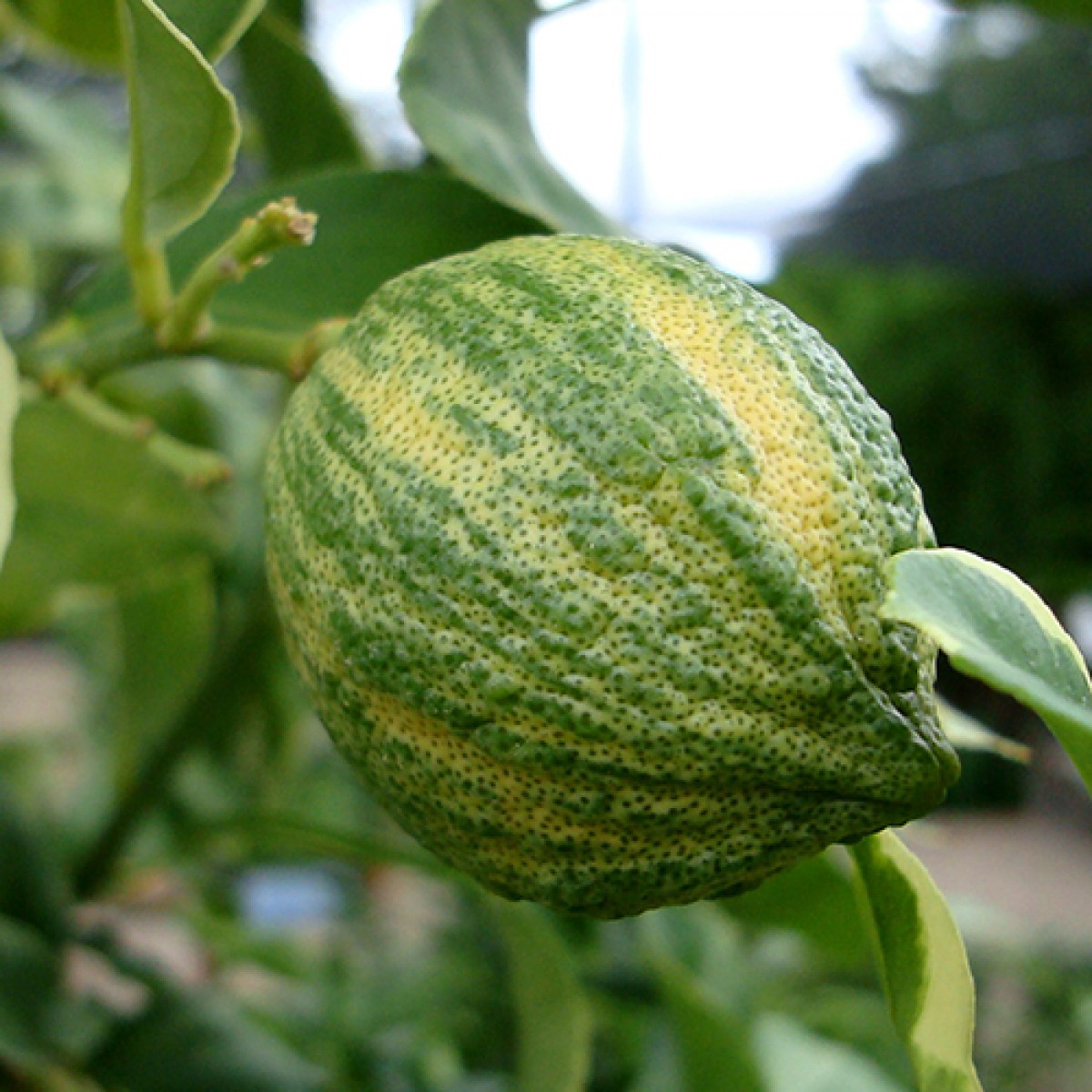
45 Year Old Variegated Pink Eureka Lemon Tree
Tree Care. The Variegated Pink lemon tree is a relatively easy, low-maintenance tree for gardeners of all skill levels. Make sure to plant your pink Eureka lemon in loose soil full of vital nutrients and minerals. If you want to plant your tree in a container, make sure it is no smaller than 41 cm (16 inches) wide.
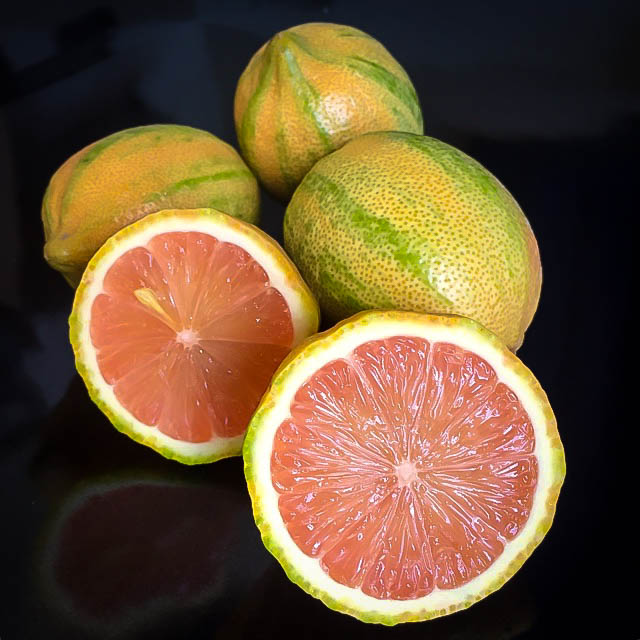
Variegated Pink Lemon Tree For Sale Online The Tree Center
Learn how to grow a pink lemon tree in your garden. Find tips for choosing the right variety, selecting the ideal location, and preparing the soil. Discover care tips for pruning, pest control, and sunlight requirements. Harvest and store pink lemons properly. Explore propagation methods and the culinary, medicinal, and ornamental uses of pink lemons.

Pink Lemon Trees to plant, Flowering trees, Plants
A sport of the popular Eureka lemon, Citrus x limon 'Eureka Pink Variegated' is a medium-sized, evergreen tree prized for its variegated foliage and round fruits. When young, the fruit is covered with green and creamy-yellow stripes. When fully ripe, the stripes fade, and the rind turns creamy-yellow with distinct pink oil glands. The flesh is pale pink when mature, low-seeded, and very acidic.

Variegated Pink Lemon plants size 1 Classifieds for Jobs, Rentals
When planted in the ground it can grow 10 to 15 feet tall and 6 to 8 feet wide. If you live in an area where winter temperatures won't allow you to grow the Eureka pink lemon tree in the ground, you can always get a dwarf Pink Variegated Lemon Tree and grow it in a container indoors. Position the tree near a sunny, south-facing window to.
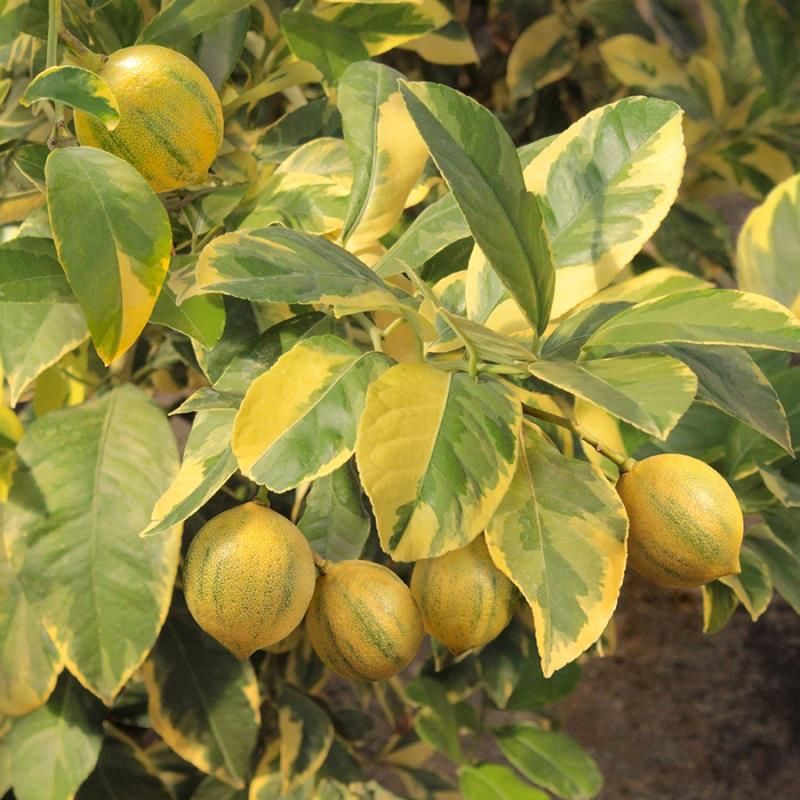
Variegated Pink Eureka Lemon Tree Stark Bro’s
The variegated pink lemon tree is derived from a natural mutation from a conventional Eureka lemon in a home garden located in Burbank, CA. Budwood was taken from the mutated sport and developed as a new cultivar. The pink lemonade tree leaves are alternate, elliptic, and variegated green and white.
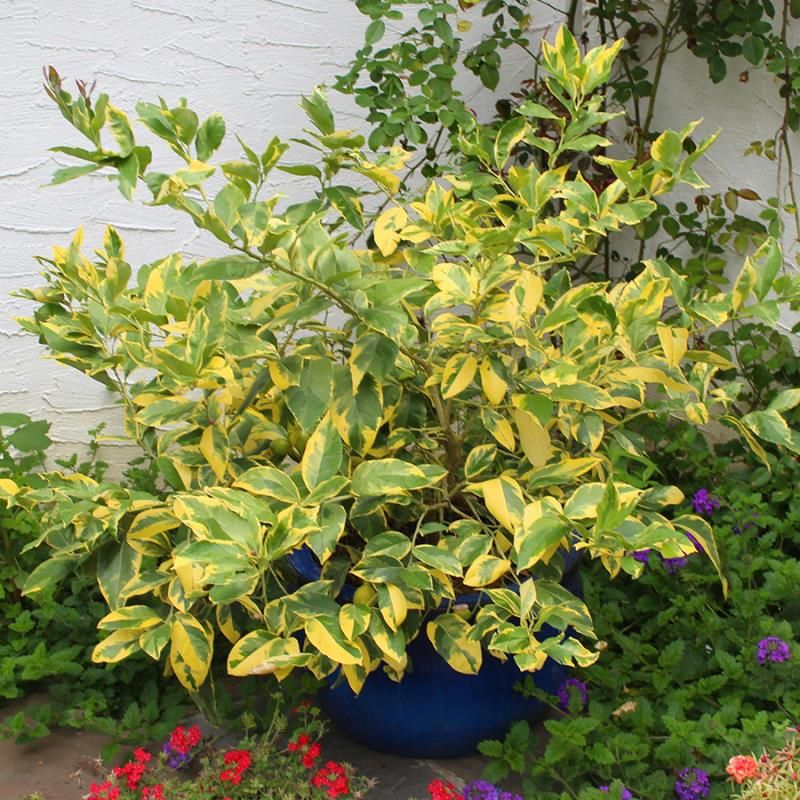
Variegated Pink Eureka Lemon Tree Stark Bro’s
Caring For Pink Lemon Trees. If you're growing a pink lemon tree in a container, punch some drainage holes in the bottom for the water to drain away. In the first growing season, you'll want to water the tree every few days to set up a strong root system. After that, every 10 days will be enough, though it'll need more on very hot days.

Container pink lemon tree 7/2/14 Pink lemon tree, Plant leaves, Pink
Distinctive green and yellow variegated foliage. Buy your Variegated Pink Semi-Dwarf Lemon Tree today! save 10% off your order when you spend $150 - use code: marchsunshine (ends 3/31). Variegated Pink Semi-Dwarf Lemon trees can grow up to 10'-15' when planted in the ground, but are easily kept smaller if grown in a container or with.
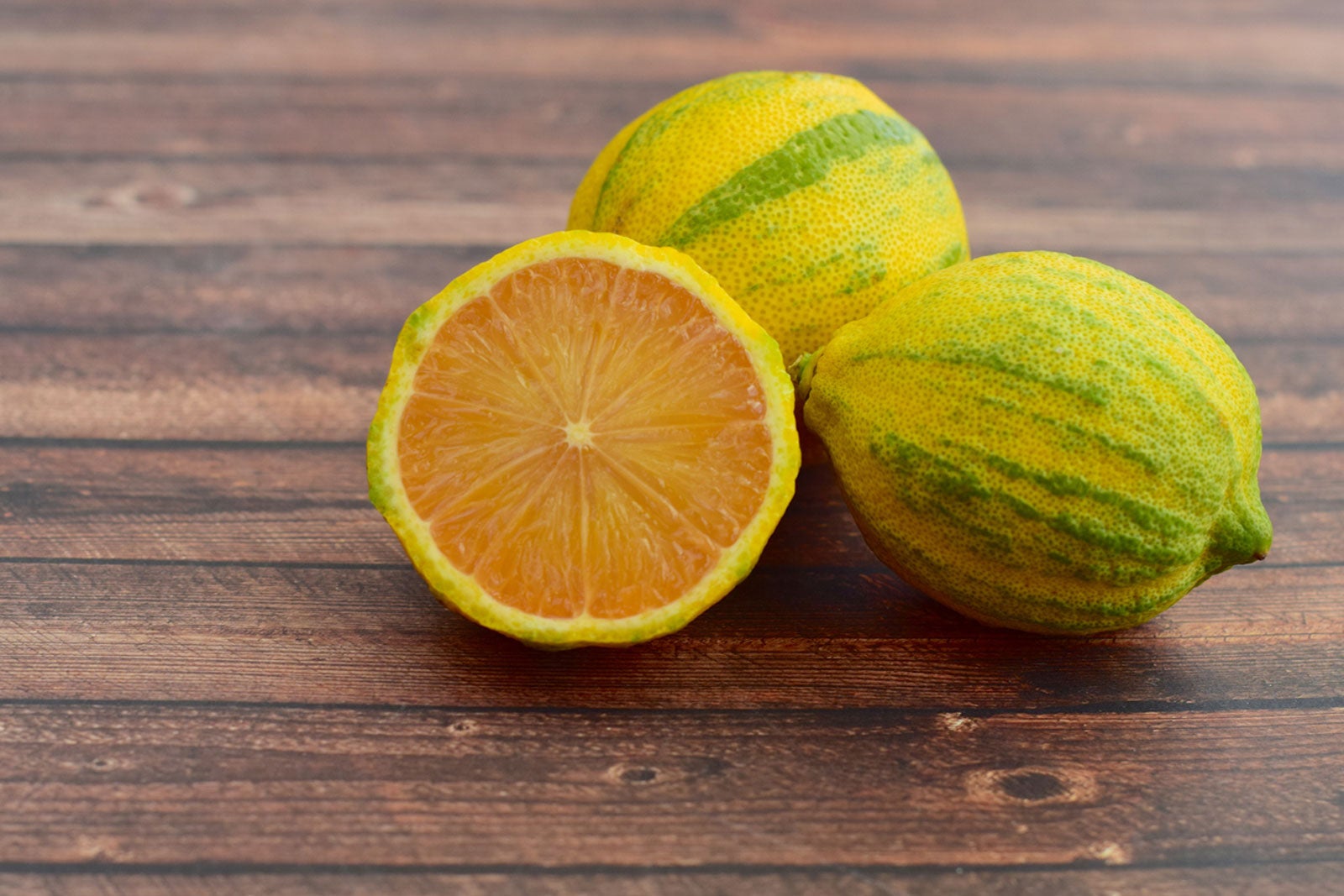
Variegated Pink Lemon Plants Learn About Variegated Pink Lemon Care
Place the plant in a container or pot with potting mix and moist soil, and cover the top end with a plastic bag. Plant your variegated pink lemon tree in early spring or fall. Avoid planting during the hottest summer months since the tree may become stressed and produce fewer fruits. Pick a sunny spot in your garden with well-drained soil.
My variegated pink lemon tree is finally starting to look nice. r
All You should know about Variegated Pink Lemon (Citrus X Limon Burm.f.'variegated Pink) > how to care and characteristics 🌱 PlantIn 🌿 Our best expert are here for your plants!

Variegated Pink Eureka Lemon Eureka lemon, Pink lemon tree, Eureka
Hardiness Zones. For gardeners residing in USDA zones 8 to 11, cultivating the Variegated Pink Lemon tree is hassle-free. However, in regions with colder climates, where frost is a concern, it's advisable to plant this tree in a container equipped with casters, allowing for easy indoor relocation when the weather turns chilly.
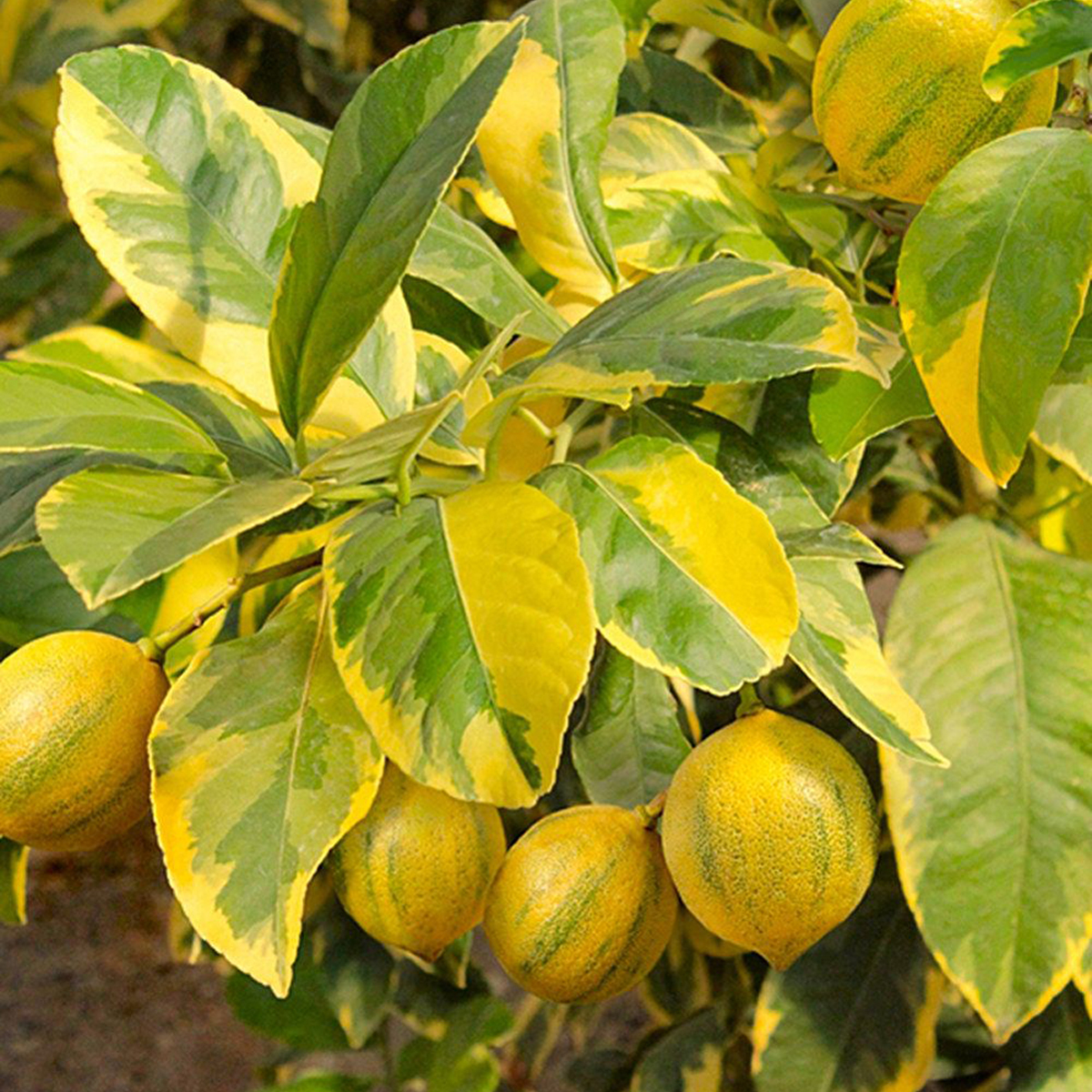
Dwarf Improved Meyer Lemon Tree Height 3 4 FT At
0.8 cups. every 9 days. Pink Lemonade Lemon needs 0.8 cups of water every 9 days when it doesn't get direct sunlight and is potted in a 5.0" pot. Use our water calculator to personalize watering recommendations to your environment or download Greg for more advanced recommendations for all of your plants. Water 0.8 cups every.

Pink Lemon Variegated Desert Horizon Nursery
What kind of soil do pink eureka lemon trees need? These plants need well-draining soil. They do well with sandy soil! Can variegated lemon trees go outdoors? These trees are hardy in U.S. Department of Agriculture plant hardiness growing zones 9 through 11 and can be planted in the ground. Anywhere colder and they will need to come inside for.

Variegated Pink Lemon Plant leaves, Plants, Pink lemon
How to Grow Variegated Pink Lemon. The variegated pink Eureka lemon tree practically grows itself! Start with rich, loose soil that drains well in a site that will get at least eight hours of sunshine daily. Trees are sold at two to three years of age. If you wish to plant in a container, choose one that is at least 16 inches (41 cm.) wide.
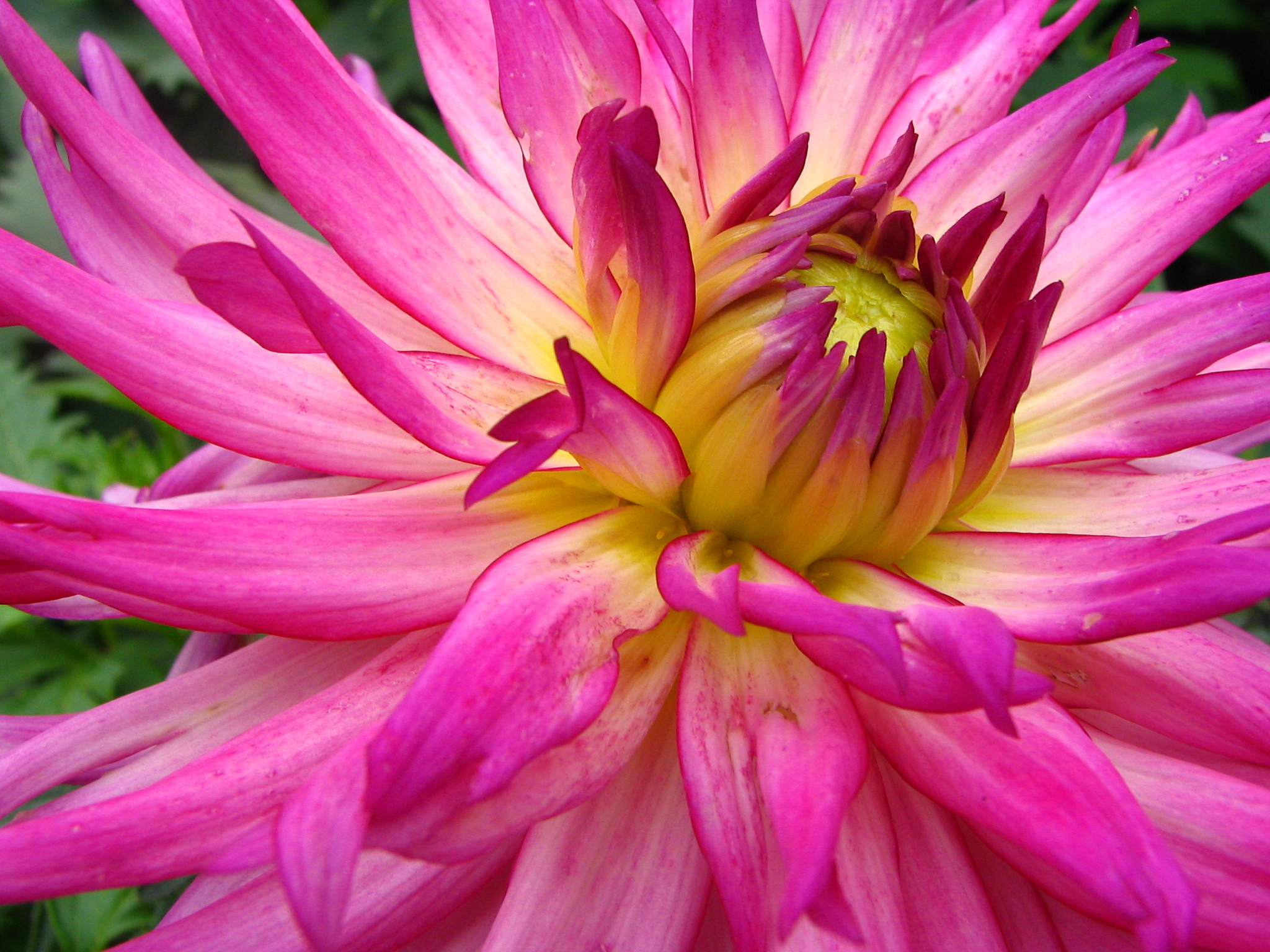
FileUnidentified Pink Flower Closeup 2048px.jpg Wikimedia Commons
Pink lemon tree, variegated pink lemon tree, eureka lemon tree; Scientific Name: Citrus limon: Harvest: November to March: Light: 8 hours of sunlight per day: Water: Require watering one to three times a week, depending on how quickly the soil dries: Soil: Grow best in loam soils with a pH of 5.5 to 6.5: Fertilizer
Pink lemon tree new growth dying. r/BackyardOrchard
Step 2: Soil for Pink Variegated Lemon Trees. Choosing soil for your Pink variegated lemon trees is simple. All you need is any sort of potting soil. We do not recommend gardening soil or topsoil to use for container gardening. This is advantageous because even if you lived in a citrus growing region, you would have to take into consideration.

FilePink rose cultivar.jpg Wikimedia Commons
Soil. Pink lemonade blueberry bushes prefer well-drained, organically rich, acidic soil. with a ph of 4.5 to 5.5. Plant in a sheltered site and add four to six inches of good organic mulch to retain moisture and cool the roots. Pine needles, oak leaves, and cotton seed meal are all good choices to help acidify the soil.